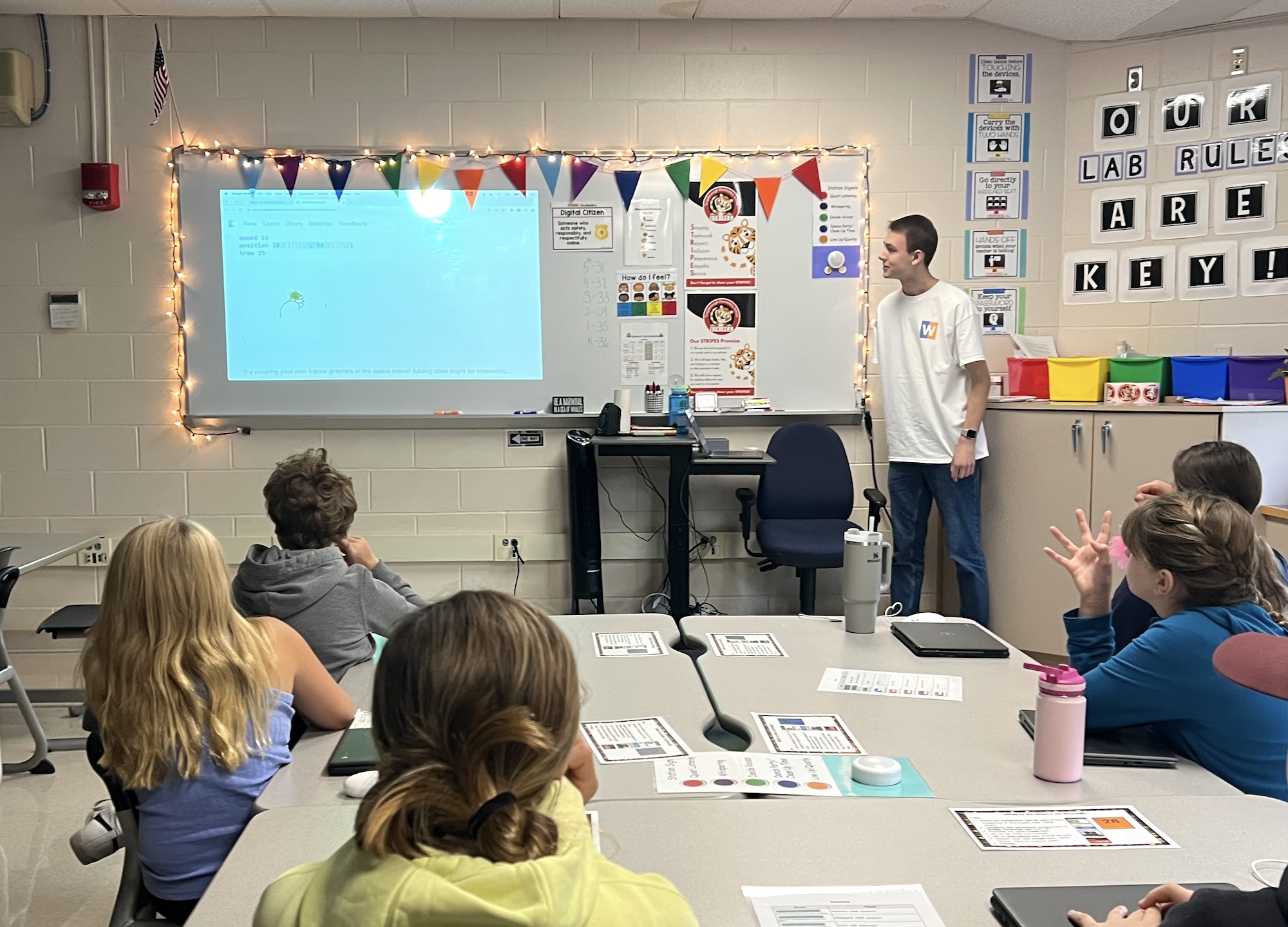
Learn to code
with Wipple
Start coding now ->
What is Wipple?
Wipple is a programming language designed for learning. With Wipple, you can make art and music, explore math and science, design video games, and more.
The Wipple Playground
You write Wipple code in the Wipple Playground, an interactive, collaborative, online coding platform. The playground works on any device with no setup required. With 80+ lessons and guides, there’s something for everyone.
Featured news
Try the new Wipple Playground!
March 23, 2024
I'm excited to announce that the all-new Wipple Playground is available for testing at preview.wipple.dev — try it out and let me know what you think! The new Wipple Playground is the result of student feedback and features a huge list of improvements. And it's powered by a new Wipple compiler that's built for speed. Here are some of the most notable changes...

Teaching Wipple in elementary school
October 23, 2023
Last week, I visited Tygsborough Elementary School in Tyngsborough, Massachusetts to teach Wipple to the 4th and 5th graders in Science and Technology class. Students spent about 30 minutes creating a Turtle drawing using the Wipple Playground. For many students, Wipple was their first text-based programming language, so learning Wipple was also an opportunity to practice typing. As I walked around the classroom, I was amazed by everyone's creativity!

